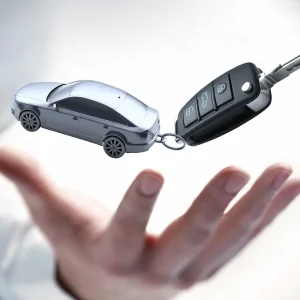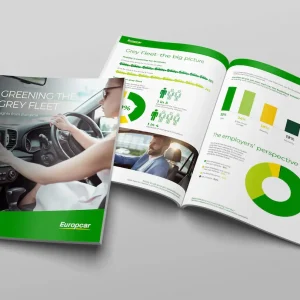Despite the potential benefits to fleets, there are still many concerns surrounding the adoption of EVs that are significantly hindering their uptake. To address the benefits and issues surrounding getting fleets plugged-in, we held a roundtable in collaboration with charging specialists Ensto, where electric car experts joined together to discuss whether EVs, in particular, can become a more inviting prospect to fleets in the current climate and going forward.
The fleet experiment
An important consideration before considering the future of EVs is assessing whether or not they’re viable in 2017. Many fleets have begun adding them, but some are more experimental than others. What is obvious is that, over the past six years, the growth in this area and the advancements in this technology have been vast. With so much push from legislation, how does it look today for fleets?
“Edinburgh College has been running electric vehicles since 2011, before the college actually came into existence properly,” explained Bob Murphy, EV administrator at Edinburgh College. “A prior research project demonstrated that it was overwhelmingly positive for us to run EVs as staff pool cars right from the get-go, plus integrate them with our curriculum. They’re used in automotive courses, and data from the cars is also used for engineering projects. Additionally, we have now saved over £100,000 in ‘Grey Fleet’ fuel expenses by deploying electric vehicles. They’ve been tremendously reliable. The only problem is that we don’t have enough cars to meet the staff demand.”
Katie Colledge-Price, managing director of Carpendale EV Consulting, used to work at Microsoft and informed attendees of the importance of introducing an EV strategy into fleets now, not just in the future.
She explained, “Electric vehicle were introduced to Microsoft in 2011, and by the time I left 25% of the fleet was electric. We looked at many different aspects of the EVs, such as whether they were suitable for the driver and whether the battery had degraded after use.

“I think the problem with take-up in fleets, currently, is a lack of information. The right information given to the general public and fleets would mean a significantly increased uptake. For example, we should educate our staff as well as provide guidance on use of both cars and charge points.We encouraged uptake, and we spent time doing workshops and events getting people in the car. We had sat with the drivers and provided training workshops to explain how to use the electric vehicles properly. This was vital, as we were conscious that we could introduce them and they wouldn’t charge them or drive them properly, and we wouldn’t reduce fuel costs.”
Many companies are looking at changing the mindset of their staff and looking to implement more EVs onto the fleet. Colledge-Price said driver training was important for optimal EV use. “Some manufacturers have a reputation of just selling the product and not giving enough information to drivers, and this needs to change if they’re to be further adopted,” she said. “Whether a private or company car, getting the right info is going to be vital for their uptake in the next few years.”
James O’Neill, UK director at Ensto, agreed. “In my experience, there is not enough expertise and knowledge in the EV sector at the moment,” he said. “A big challenge for most fleet managers or procurement directors is to impart that knowledge and I don’t think, as an industry, we’re consistent in that.”
A sensible choice?
‘Fit for purpose’ is becoming a real buzzword when it comes to EV uptake. In general, the uptake will be driven by government policy and incentives, but if the cars are not used for their intended purpose and given to drivers who have no use for them, they’re not going to succeed until the technology has improved further.
Hannah Bishop, BMW’s national sales manager, explained that for BMW, it was all about the right car for the right person. “It’s all well and good saying that diesel is dead, but some drivers won’t get on with EVs because they’re travelling too many miles each day,” she said. “Petrol might not be the best solution for them and neither would EVs so, as a manufacturer, it’s our responsibility to find an individual solution for each person and assess every driver in a realistic way.”

Ensto’s O’Neill agreed, “If the EV market is to truly succeed in the UK, then the manufacturers need to take more of a forward step in the way they interact with the customer and explain charging. The manufacturers of the charging infrastructure also need to do more to push forward changing the mindset of
the customer.”
BMW has ‘product geniuses’ who don’t earn commission but are there to explain each product and its benefits to the customer. “This is a complete shift change in dealerships, and I believe it is in the process of changing the whole dealership structure completely,” said Bishop.
Another current issue is, of course, the much-discussed topic of charging infrastructure for EVs.
Matthew Trevaskis, head of electric vehicles at the Renewable Energy Association, explained, “We are basically setting ourselves up for another Dieselgate. Plug-in hybrids can, when used for optimal journey patterns, give good economy but often don’t and aren’t as low emission as drivers think or manufacturers claim. It almost seems that the responsibility stops the moment that the car is bought or registered, rather than focussing on optimal usage.”
Colledge-Price explained that one big barrier was the lack of customer service at charge points on the weekend – when most people would be driving longer distances in them. “I find the information desks at Welcome Break don’t even know how to reboot the Wi-Fi that links the two things, let alone checking the charge point or getting it regularly serviced.”
Ensto’s O’Neill explained that UK charge point providers are trying to corner the market at the moment. “It should be much easier than people are making it. What will happen over time is that these networks dictating to people that they need to be part of our club will all lose out.”
Residual tipping point
Attendees also took a look at residual values and the tipping point at which EVs can make financial sense. Many people believed that EVs will continue to become more affordable, especially as the used electric car market develops.
“I think 2019-20 will be the tipping point here, assuming government offers subsidies on the principle of adopting EVs,” noted Jamie Arkell, area manager at Ogilvie. “By this point, the understanding surrounding EVs will be better, and residuals and infrastructure will have grown to reach parity with petrol or diesel. This will happen in fleet before retail. There is a period now where EVs seem expensive but, as soon as the general public want to buy them second-hand, then they should perform better,”
he added.
And, of course, new legislation such as the T-Charge and congestion charge in London helps with the continued adoption of, and demand for, EVs.
Jonny Berry, EV sales manager at Renault, explained, “Back a few years ago, I was selling 20 EVs a quarter, but now there is a real demand and I am working all around the UK.”
Mobility and fleets
Berry said, “In the future, it wouldn’t be silly to expect electric and mobility solutions going hand in hand. I think companies will start offering rewards for car pooling and priority parking for charge points. Things like that will really revolutionise the
EV market.”
Electric car sharing is becoming increasingly popular in cities like London, where companies such as BlueCity and Alphabet’s AlphaCity operate. “There’s not always a need for a company car driver to have their own car; it’s more of a generational belief,” said Colledge-Price. “There will always be the needs-based company car drivers, but I do believe that the old-school company car scheme and salary sacrifice will start to phase out as a result.”
Ensto’s O’Neill explained that if we we’re going to see EVs run the way we’d like, then fleets and other sectors of the automotive industry must have the ability to adapt.
Nigel Morris, principal IT infrastructure specialist on Project Liaison at Swansea University, agreed: “I think adapting is one of the main issues and of course infrastructure is still key, followed by costs and user acceptance. Progress in degrees is being made on all three and I think user acceptance is
changing rapidly.”
Morris concluded that the real tipping point would be when higher-level autonomy comes to fleet vehicles and that technology filters down to EVs. “When the EVs talk to each other, couple up on the motorways, have tech that protects drivers’ licences and lives, switch from fuel source to ZE [zero emissions] automatically as they enter ZE zones, stick to speed limits automatically – I believe that is when the real tipping point will come, regardless of methods of propulsion, car or van,” he said.





